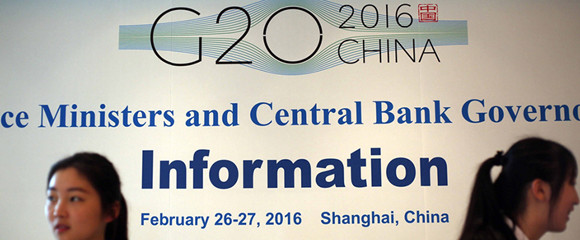Cities on Yangtze Delta eyeing closer ties, better development
Updated: 2016-05-13 15:36
(Xinhua)
|
|||||||||
SHANGHAI - Every Friday, Lu Junbo, an engineer in an American company in Shanghai, takes a train home to Wuxi, 130 km away.
"House prices in Wuxi are much lower than in Shanghai, and the trip is only about 40 minutes by high-speed train. It's a no-brainer for me to live in one city and work in another," said the man who calls himself a "Yangtze Delta resident."
Lu Junbo's choice is still an unorthodox one in China, but that may be about to change as cities in the Yangtze Delta plan for coordinated development, according to a plan approved by the State Council, China's cabinet, on Wednesday.
A cluster of cities in the region that includes Shanghai and parts of Jiangsu, Zhejiang and Anhui provinces, will become a city cluster with "global influence" by 2030.
The cities are being asked to replicate the experiences of Shanghai FTZ, promote integrated development of markets such as finance, land and property, and to cooperate on public services including education, medicine, transportation and social security.
Since the launch of the Shanghai FTZ in 2013, it has been used to test a number of new policies including negative list management of foreign investment, opening up more industries to them.
"Taking custom clearance as an example, the Shanghai FTZ has fast customs clearance.If the system is used elsewhere, more companies will have their cost reduced," said Shanghai customs official Zhang Binzheng.
Cities in the region will work together to solicit foreign capital, attract foreign employees, open up their service sectors and bring in more foreign trade.
Environmental protection with coordinated prevention and treatment of air, soil and water pollution is a key aspect of the plan.
China has been emphasizing green development along the Yangtze so it is important for the delta, the leading growth engine of the Yangtze River Economic Belt, to pay due attention to the matter and a regional ecological protection and compensation mechanism is to be established.
In the region is the major fresh water source Taihu Lake which is in urgent need of rehabilitation and protection.
With Shanghai at the center, the cities will be linked by more railways, expressways and waterways. High-speed rail track in the Yangtze River Delta already exceeds 3,400 km.
"Institutional integration is more important than infrastructure. The cities need consistency in environmental protection and pollution control," said Yu Hongsheng of Shanghai Academy of Social Sciences.
China has shown itself to be keen on developing city clusters in recent years. Beijing-Tianjin-Hebei, along with the Yangtze and Pearl River deltas, have been important growth engines.
Xiao Jincheng, of the National Development and Reform Commission, believes city clusters will eventually lead to coordinated development of smaller cities and even townships, vital to future urbanization.
"House prices in Wuxi are much lower than in Shanghai, and the trip is only about 40 minutes by high-speed train. It's a no-brainer for me to live in one city and work in another," said the man who calls himself a "Yangtze Delta resident."
Lu Junbo's choice is still an unorthodox one in China, but that may be about to change as cities in the Yangtze Delta plan for coordinated development, according to a plan approved by the State Council, China's cabinet, on Wednesday.
A cluster of cities in the region that includes Shanghai and parts of Jiangsu, Zhejiang and Anhui provinces, will become a city cluster with "global influence" by 2030.
The cities are being asked to replicate the experiences of Shanghai FTZ, promote integrated development of markets such as finance, land and property, and to cooperate on public services including education, medicine, transportation and social security.
Since the launch of the Shanghai FTZ in 2013, it has been used to test a number of new policies including negative list management of foreign investment, opening up more industries to them.
"Taking custom clearance as an example, the Shanghai FTZ has fast customs clearance.If the system is used elsewhere, more companies will have their cost reduced," said Shanghai customs official Zhang Binzheng.
Cities in the region will work together to solicit foreign capital, attract foreign employees, open up their service sectors and bring in more foreign trade.
Environmental protection with coordinated prevention and treatment of air, soil and water pollution is a key aspect of the plan.
China has been emphasizing green development along the Yangtze so it is important for the delta, the leading growth engine of the Yangtze River Economic Belt, to pay due attention to the matter and a regional ecological protection and compensation mechanism is to be established.
In the region is the major fresh water source Taihu Lake which is in urgent need of rehabilitation and protection.
With Shanghai at the center, the cities will be linked by more railways, expressways and waterways. High-speed rail track in the Yangtze River Delta already exceeds 3,400 km.
"Institutional integration is more important than infrastructure. The cities need consistency in environmental protection and pollution control," said Yu Hongsheng of Shanghai Academy of Social Sciences.
China has shown itself to be keen on developing city clusters in recent years. Beijing-Tianjin-Hebei, along with the Yangtze and Pearl River deltas, have been important growth engines.
Xiao Jincheng, of the National Development and Reform Commission, believes city clusters will eventually lead to coordinated development of smaller cities and even townships, vital to future urbanization.
Today's Top News
China vows to step up anti-corruption co-op
Chinese entrants in public speaking contest fight hard
Global anti-corruption summit opens in London
Britain raises threat of terror attacks to higher level
Chinese students to benefit from EU rules easing
Beijing police respond to death in custody
Uncertainty over Brexit impacts UK economy: Report
AC Milan starts sale talks with Chinese investors
Hot Topics
Lunar probe , China growth forecasts, Emission rules get tougher, China seen through 'colored lens', International board,
Editor's Picks

|

|

|

|

|

|







